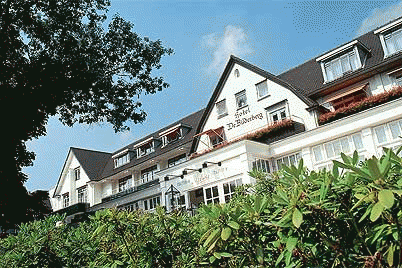For 57 years, the Bilderberg Conference, an unofficial conclave of 100-odd uber powerful guests has taken place annually at a secluded resort. Not once have the media networks reported what goes on behind closed doors at these invitation-only meetings.
Not that you could walk into the conference venue that easily. The security at these spring conferences is overwhelming: air force fighter jets fly overhead, army commandos ring the outer perimeter, and the local police are known to rough up anyone coming within a mile of the venue.
This year, the conference was held in St Moritz, Switzerland, from June 9-12. Bill Gates and Larry Summers were there, allegedly so was US Treasury Secretary Timothy Geithner, and yet not a word from the media.
Like Gates and Summers, Bilderberg members are not just merely rich and influential. They are insiders in politics, banking, business, the military and the media; among the richest and most powerful people in the world.
Among the members of this club are Bill Clinton, George W. Bush, Paul Wolfowitz (former World Bank president), Henry Kissinger (arch Cold Warrior), David Rockefeller (international financier and long time chairman of the Rockefeller family-controlled Chase Manhattan Bank), Zbigniew Brzezinski (who has called for the encirclement and breakup of Russia so the US is able to dominate the Eurasian landmass), Tony Blair (one of the central characters who lied about Iraqi WMDs), Peter Sutherland, the former chairman of BP (the oil major which according to official documents was desperate to get at Iraqi oil), European royalty, CIA directors past and present, directors of MI6, the British secret service, and other well-connected individuals.
You get the picture.
THE HISTORY
The group came together because of the events leading up to, and after, the Second World War. The Western empires had crumbled, colonialism was beating a hasty retreat, and suddenly Europe's brief 300-year domination of the world was history. Newly independent countries with vast populations and resources now dotted the world.
Another problem for the European elites was that a large part of the Eurasian landmass was occupied by the Soviets, who also offered a then-attractive economic model for post-colonial countries. How could the West get back in the game after having exhausted itself in two successive world wars?
European leaders were predictably concerned about the future and felt the need to assess and improve the situation. Many of them felt the need for a high-powered forum to promote and protect European and US interests.
The idea for such a platform originated in the mind of Joseph Retinger, a Pole, a drifter, an internationalist if you will, without a country. The Sorbonne-educated Retinger, who was as comfortable with lowly trade union leaders as he was with European royalty, observed an intense anti-Americanism that cut through all European social classes. He felt this was dangerous for the West.
While his Atlanticism found acceptance among the caviar classes, Retinger realized no politician would back him. So in 1952 the Pole approached a former Nazi SS officer, Prince Bernhard of the Netherlands, and asked him to serve as honorary head of the organization. After establishing a small European committee, Retinger and Bernhard turned their attention to the United States.
THE GAME'S AFOOTAmerican Pulitzer Prize-winning author and columnist Kai Bird, writes in the book, The Chairman: John J. McCloy, The Making of the American Establishment: "In late 1952, Retinger went to America to try the idea out on his American contacts. Among others, he saw such old friends as David Rockefeller and Bedell Smith, then director of the CIA. After Retinger explained his proposal, Smith said, 'Why the hell didn't you come to me in the first place?'
The CIA spymaster quickly referred Retinger to C.D. Jackson, who was about to become Eisenhower's special assistant for psychological warfare. It took a while for Jackson to organize the American wing of the group, but finally, on May 29, 1954, the first conference was held in the Hotel de Bilderberg (hence the name), a secluded hotel in Holland, near the German border.
"Prince Bernhard and Retinger drew up the list of invitees from the European countries, while Jackson controlled the American list. As Retinger explained, invitations were only sent to important and generally respected people who through their special knowledge or experience, their personal contacts and their influence in national and international circles can help to further the aims set by Bilderberg."
INSIDE STORY
Former AFP editor James P. Tucker is a veteran journalist who spent many years as a member of the elite media in Washington. Since 1975 he has won widespread recognition for his pursuit of on-the-scene stories reporting the intrigues of global power blocs such as the Bilderberg Group.
A few journalists like him have succeeded in getting scraps from the high table (through sympathetic employees like waiters, bellhops, and stewards at conference venues) and have pieced together a story of intrigue at these conclaves.
(Note: You can view every article as one long page if you sign up as an Advocate Member, or higher).





